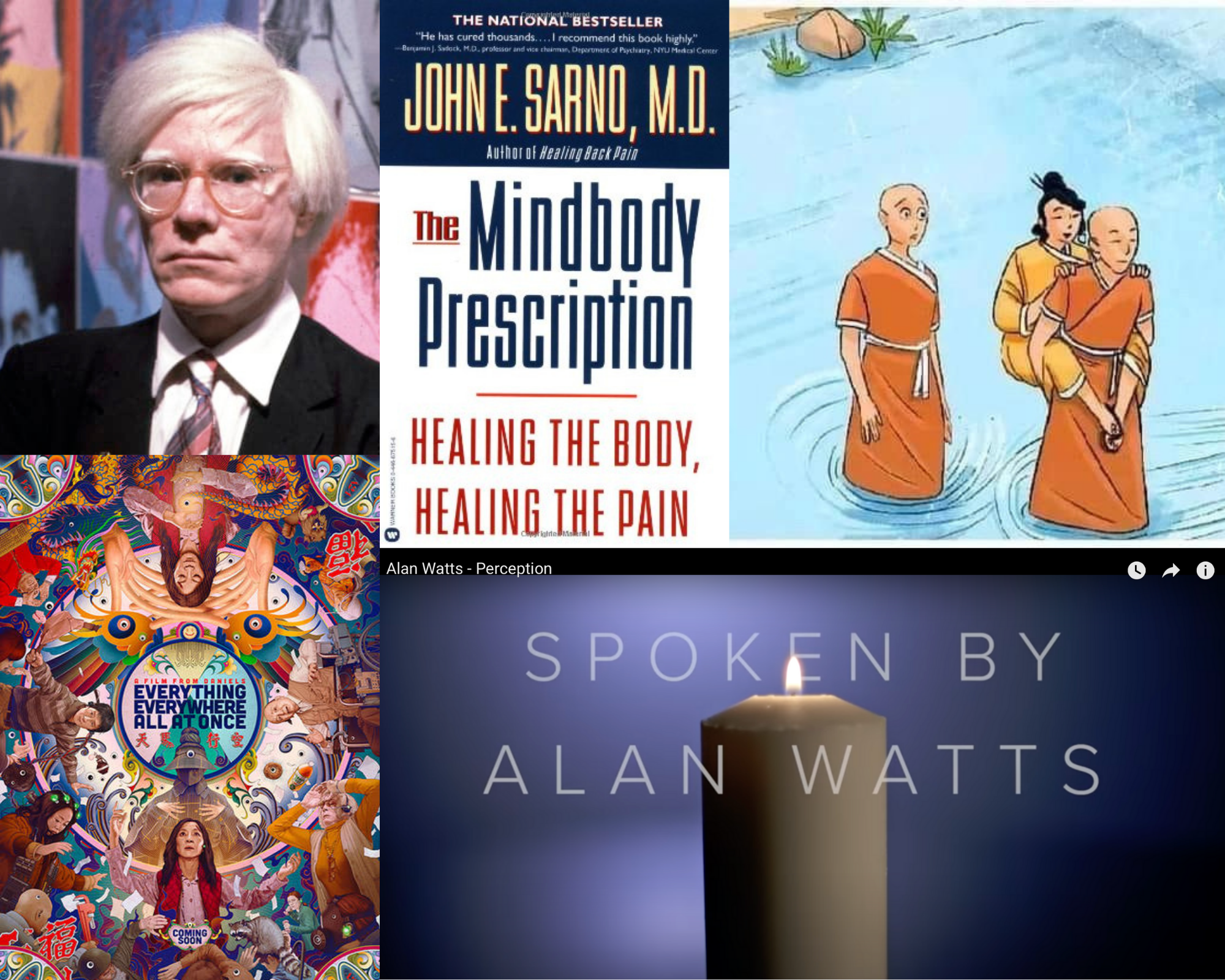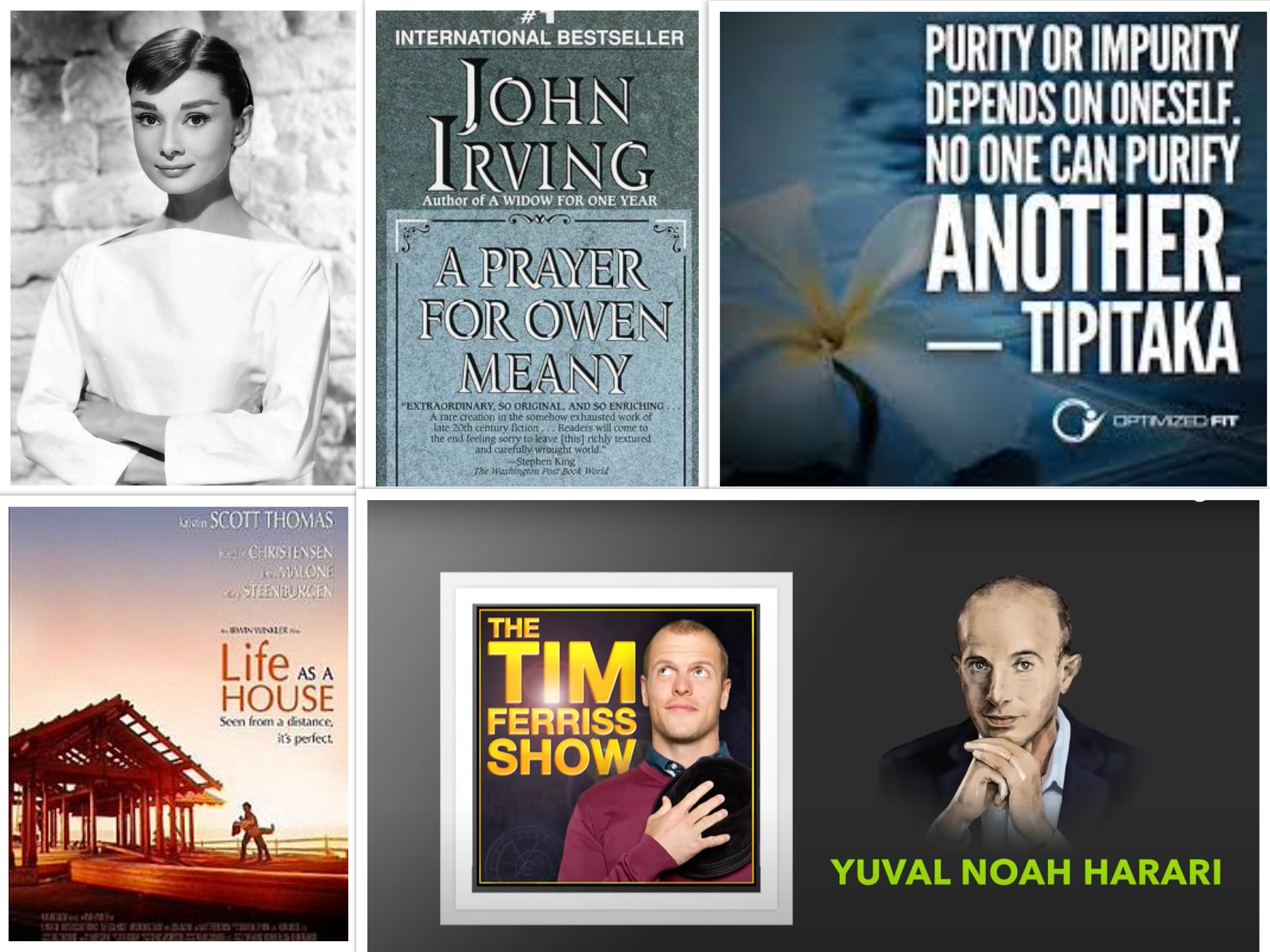Sunday Supplement #53 (May 15th, 2022)
Below is another Sunday Supplement with a quote worth sharing, a book worth reading, a movie worth watching, brainfood worth consuming, and a spiritual passage worth pondering.
I hope you take something away from these recommendations that enriches your week ahead!
Quote of the Week:
“Life is like a bicycle. To keep your balance, you must keep moving.”
– Albert Einstein
Book of the Week:
The Autobiography of Benjamin Franklin – Benjamin Franklin
Benjamin Franklin’s Autobiography contains various aspects of the founding father’s life, including early stories, thought processes, beliefs, and plans.
The book is divided into four parts. The first recounts his early life, including his fondness for reading and his apprenticeship with his brother, a Boston printer.
After a dispute with his brother, Franklin left for New York, Philadelphia, London, and back to Philadelphia. Franklin continues his own writing and publication pursuits all the while.
In part two, Franklin goes over thirteen virtues he wishes to perfect and his practice of keeping a notebook to keep track of his offenses.
Parts three and four continue recounting Franklin’s later years. He writes about his study of languages, his beliefs around the essentials of all religions, and his government involvement.
Many brilliant little pieces of wisdom can be picked up by reading the Autobiography. One of my favorites is leaving someone an “out” in an argument.
The book can be dry at times, but it is worth pursuing to get an insight into one of the founding father’s thoughts on life in the 1700s.
Movie of the Week:
Rick Famuyiwa’s is a brilliant coming-of-age comedy/drama. The film follows Malcolm, a geek living in a tough neighborhood, interested in hip-hop but not living the gangster culture.
Malcolm and his friends are more interested in school, and Malcolm sets his sights on Harvard. However, his college plans get interrupted when he attends a private party and ends up with a backpack full of drugs.
The movie follows Malcolm and his friends as they get caught in the situation of being forced to sell the drugs while trying to get finish school and get into college.
Rick Famuyiwa wrote and directed the film. He crafted an entertaining and engaging story that explores themes of race and self-acceptance packaged in a wild ride.
Dope didn’t make a huge impact in theaters, but it made $17 million off a $7 million budget and received an 88% critics rating and 83% audience score on Rotten Tomatoes.
The movie might not be for everyone (rated R), but the trailer is worth checking out to see if it’s something you’d want to put on your watch list.
Brainfood of the Week:
Let It Go, Ride the Wind | The Taoist Philosophy of Lieh Tzu
This video discusses the Taoist references to the life of Lieh Tzu. The Taoist sage is described as one who rode the wind with an admirable indifference to normal things.
The Liezi text is the primary source for the information in the video. It explores philosophical themes like the nature of reality, the purpose of life, and the workings of the mind.
The tendency of human beings to stand in their own way is a theme explored throughout the Liezi. The attempts to control the uncontrollable and fearing change are prominent.
There is an introduction in the video to Lieh Tzu, followed by a story of the legend of the Yellow Emperor and how he managed to learn to ride the wind like Lieh Tzu.
The video constantly reminds the viewer of the metaphors explored in the texts of a mental state where we move lightly through life when external circumstances don’t weigh us down.
Many miracles are possible during this flow state. It’s when we doubt or overthink that we find ourselves failing or incapable of action. Worrying about outcomes burdens our experience.
The video explores much more of the Liezi text and the principles of Lieh Tzu.
Einzelgänger narrates and animates this video. I’ve featured his videos in previous Sunday Supplements and believe his channel is well worth checking out.
Closing Spiritual Passage:
“If you are building a house and a nail breaks, do you stop building, or do you change the nail?”
– Rwandan Proverb
This Rwandan Proverb reminds me of how often we can get caught up in minor matters when we should continue moving forward.
The perspective the proverb shows is a fantastic example of looking at the scale of a small problem in the context of a larger goal.
I think it’s easy in a moment to feel frustrated with something that goes against our wishes. Whether it’s a person or an outcome, we can get wrapped up in something outside ourselves.
Sometimes the best thing to do is to move on with our days. Every moment passes, and it’s not worth letting something small negatively affect our course.
The Rwandan proverb creates the perfect image for me to remember to pick up another nail rather than quitting work on my house.
Move past little things in your way, and have a blessed week ahead!
Comments closed


